Before humans make a buying decision on anything, they answer three main questions. Think about anything you’ve purchased in the past and you’ll see you’ve answered these questions before you made the buying decision… whether you knew it at the time or not. The first question is, “Does this product/service satisfy my need?” For example, the defined need could be the need for hot water because your current hot water heater broke. A new hot water heater or a tankless hot water heater would solve the problem and satisfy your need. A new teapot, while able to produce hot water, would miss the mark.
The second question you ask yourself will result in a collection of responses. That question is, “Does this product / service align with what is most important to me (my decision criteria)?” Your decision criteria is the list of characteristics most important to you. Your criteria list is also ranked from what is most important to least important. For example, with the hot water heater example, you may look at timeliness to get it installed, will they dispose of the old tank?, what brands do they carry?, or if it is gas or electric. Depending on how much you like your hot water, the speed of installation may be more important than the brand name. Of course the one criteria we always consider is price. No one has endless monetary resources, so we have to consider the price, but the price is not always the most important factor when we make our buying decision. We know there is more to consider than just the price. If you really want your hot water, you will pay a premium if you can get it installed tomorrow instead of waiting two weeks to save $50.
From my experience working with L&D Professionals since 1991, when considering a new training partner, they go through the same two questions we all do before making the final buying decision. “Does it satisfy our learning / behavioral change needs? Does it align with the criteria most important to our organization (price, quality instructor, quality content, proven results, etc.)?” But there is still one more question before the final decision is made. This question carries a high level of risk and it is one of the final considerations before the buying decision is made. It is a high-risk question with large payoff if answered correctly, but with devastating results if answered poorly. This third question can make or break the buying decision when selecting a training partner, yet you rarely ever hear the L&D decision maker verbalize it. But they always consider it. This unspoken third question is, “How will this decision affect my reputation?”
Don’t let the question sound superficial or selfish! We all do the same thing. It’s really just a risk question. We all evaluate the risk associated with a buying decision before deciding. How will your purchasing decision be viewed by the outside world? Will your decision reflect favorably on you and your organization? The L&D decision maker wants to make the best decision for the students, for their company, and for their own career. Who wouldn’t? After a training workshop is delivered by a new training partner, the last thing the Training Manager wants to hear is, “I’m very disappointed. That was a complete waste of time for my team! What a colossal waste of our company’s resources.” None of us would want to hear that! On the contrary, we want to hear the exact opposite from the workshop attendees and from their manager. “That was incredible! I learned more in two days than I learned in a full semester of college. Everything was extremely applicable to my job and it will be easy to implement these skills starting tomorrow!”
All of us want to hear the accolades resulting from our wise business decisions, not the opposite. We want to make the best decisions possible. Our decisions affect our organizations, our professional reputations, and ultimately our careers. How can L&D professionals ensure positive outcomes when selecting a new training partner? When evaluating new training partners, ask the questions that draw the training vendor’s capabilities and past results into greater focus:
- Ask how much of their business is repeat business vs. new
(Customers who love them will always bring them back!) - Ask how they usually acquire new customers
(You hope a significant amount comes from referrals and word of mouth!) - Ask about their customer churn rate and why their customers churn
(Customers will leave for various reasons, but they don’t churn if they love it!) - Ask for whom they have delivered their workshops
(Look for other companies your size, in your industry, but also some variety.) - Ask for evaluation summaries from recent workshops
(Look for mostly positive remarks, but also for constructive comments. Look for detailed and specific comments, not just generic “good job” statements.) - Ask for customer references and then call them all
(Talk to at least three references and ask what they like best/least about the training vendor. Also ask how long they have been using the training partner. Another good question is to ask the reference why they selected the vendor.)
When selecting a training partner, the best provider is the one that can satisfy your needs for behavioral change, aligns with your decision criteria, and provides the least-risk option. Asking the right questions during your evaluation phase can lead you to the best training partner for your company. Your good selections will lead to positive outcomes for your organization, for your professional reputation, and ultimately for your career.
What are some of the questions you ask when interviewing new training partners?

